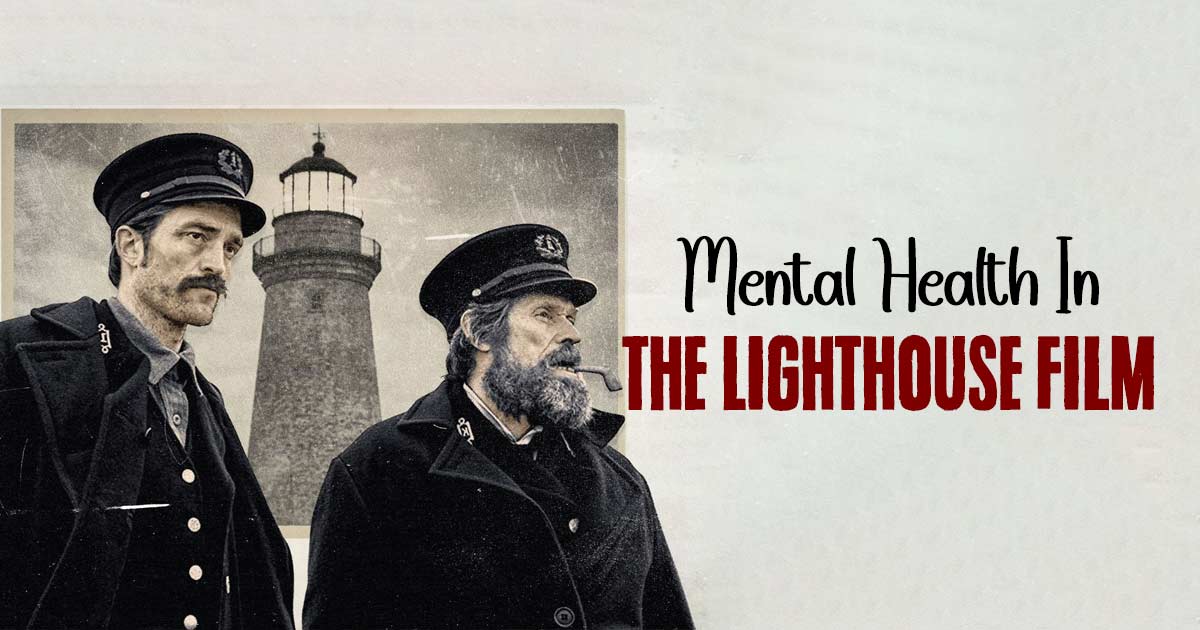The Lighthouse film, set against the backdrop of 1860s New England, serves as a profound exploration of mental health, with Ephraim Winslow (Robert Pattinson) and keeper Tom Wake (Willem Dafoe) navigating a remote lighthouse while grappling with their inner demons, leading to escalating paranoia, isolation, and the erosion of their sanity.
At its core, The Lighthouse film (2019) is a cinematic enigma, defying mainstream Hollywood norms by embracing a blend of stars like Robert Pattinson and Willem Dafoe with an art-house sensibility.
This film channels elements of horror but relies predominantly on symbolic imagery to drive its narrative, offering a unique and challenging experience for viewers.
The black-and-white cinematography engenders an atmosphere reminiscent of gothic noir, eliciting both discomfort and fascination. This visual palette mirrors the unsettling presence of mermaids (sirens), which recur throughout the story.
Beneath its enigmatic layers, The Lighthouse weaves multiple narratives. Predominantly, it manifests as an old-school psychological horror akin to works by Poe or Henry James, where the themes of madness and murder vie for supremacy. This darkness is punctuated by moments of grim humor, injecting levity even amid the protagonists’ delirium and intoxication.
The culmination of the film is not a conventional twist but rather an unearthing of unsettling revelations that parallel the characters’ escalating mental deterioration. Winslow confesses culpability in the death of his former boss and the subsequent identity theft that led him to seek refuge on the secluded island housing the lighthouse.
He stumbles upon the body of the former first mate, a predecessor he is intended to replace. The authenticity of these events remains shrouded in uncertainty, blurring the boundaries between reality and Winslow’s fractured perception. The narrative probes the question of trust, as both characters accuse one another of manipulation and mental instability.
The film also delves into the notion that isolation breeds insanity, drawing a historical link to the use of mercury in maintaining lighthouse lamps—an endeavor notorious for causing madness.
However, The Lighthouse posits that the characters may have arrived at the island already mentally vulnerable, implying that their sanity was compromised long before their arrival.
A pivotal element of the narrative is the cryptic lighthouse lamp, which evolves into a wellspring of madness and temptation. This thematic strand finds an echo in The Lord of the Rings, where the lighthouse beacon bears a resemblance to Sauron’s fiery Eye.
Winslow and Wake forge a quasi-possessive bond with the light, imbuing it with sensual undertones. Winslow’s odyssey into myth and fantasy, complete with deities and mermaids, parallels Frodo’s quest in a distorted and tragic manner. Their relationship is twisted, marked by mutual contempt and interdependence.
Throughout the film, mermaids emerge as symbols of sexual yearning and frustration. The lighthouse itself adopts phallic symbolism, while the characters’ connection with it becomes suffused with sexual tension. As the narrative unfurls, Wake takes on the characteristics of the sea god Poseidon, and gulls morph into harbingers of doom.
The absence of color in the film’s black-and-white visual landscape intensifies its portrayal of desolation and solitude, amplifying every gesture and expression with stark clarity. This stripped-down aesthetic heightens the sense of confinement, setting the film apart from the vibrant palette typically associated with gothic horror.
From a mental health perspective, The Lighthouse emerges as a riveting exploration of the protagonists’ psychological unraveling amidst a landscape barren of solace or companionship.
The film’s intricate symbolism draws inspiration from myths, maritime folklore, and unfulfilled desires. Ultimately, the elusive nature of truth and the allure of the light serve as catalysts, driving the characters to tragic outcomes while rendering them blind to all other facets of existence.
Winslow’s journey epitomizes the effects of isolation on mental health. His descent into paranoia and obsession underscores the destructive potential of loneliness. The isolation amplifies his insecurities and guilt, driving him to hallucinations and erratic behavior.
His fixation on the lighthouse lamp mirrors his longing for a guiding light in the midst of darkness, representative of his quest for clarity and redemption.
Furthermore, the antagonistic dynamic between Winslow and Wake symbolizes the internal struggle within an individual’s mind during times of distress. Wake’s manipulation and gaslighting mirror the negative self-talk and self-doubt that individuals battling mental health issues often experience. The power struggle between the two characters becomes a microcosm of the internal battles many face within their minds.
Winslow’s interactions with the mermaids can be seen as symbolic of his yearning for connection and intimacy, both of which are absent in his isolated reality. The mermaids serve as a manifestation of his repressed desires and unmet emotional needs. This yearning drives him to the brink of delusion, highlighting the impact of unaddressed emotional struggles on mental well-being.
As the characters grapple with alcoholism and substance abuse, The Lighthouse film underscores the destructive coping mechanisms individuals employ in response to their mental anguish. The film portrays alcohol as a form of escape from their torment, but the result is a deepening spiral of desperation and further detachment from reality.
The film’s captivating symbolism and narrative complexities serve as a poignant reminder of the intricacies of mental health. The Lighthouse film delves into the psyche of its characters, exposing the fragility of their mental states in the face of isolation, guilt, and unfulfilled desires.
By weaving together themes of madness, obsession, and the human need for connection, the film offers a profound reflection on the profound impact of mental health on individuals’ lives.

